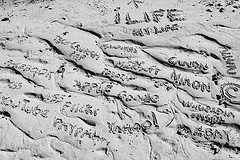« The University of Michigan approached OCLC about managing future operations for the OAIster project to ensure its long-term viability, » said John Wilkin, Associate University Librarian, University of Michigan Library. « OCLC plays a pivotal role in the business of metadata creation and distribution. Situating OAIster with OCLC helps to create an increasingly comprehensive discovery resource for users. » …
OCLC recognizes that open archive collections are critical for scholarly research, communications and scholarship. To that end, OCLC commits to building on the success of OAIster by identifying open archive collections of interest to libraries and researchers, and ensuring that open archive collections will be freely discoverable and accessible to information seekers worldwide.
Starting in late January 2009, while OAIster continues to be freely available at the www.oaister.org Web site, OCLC will host a version of OAIster on OCLC’s FirstSearch platform and make it available through subscriptions to the FirstSearch Base Package at no additional charge.
(via Open Access News)
